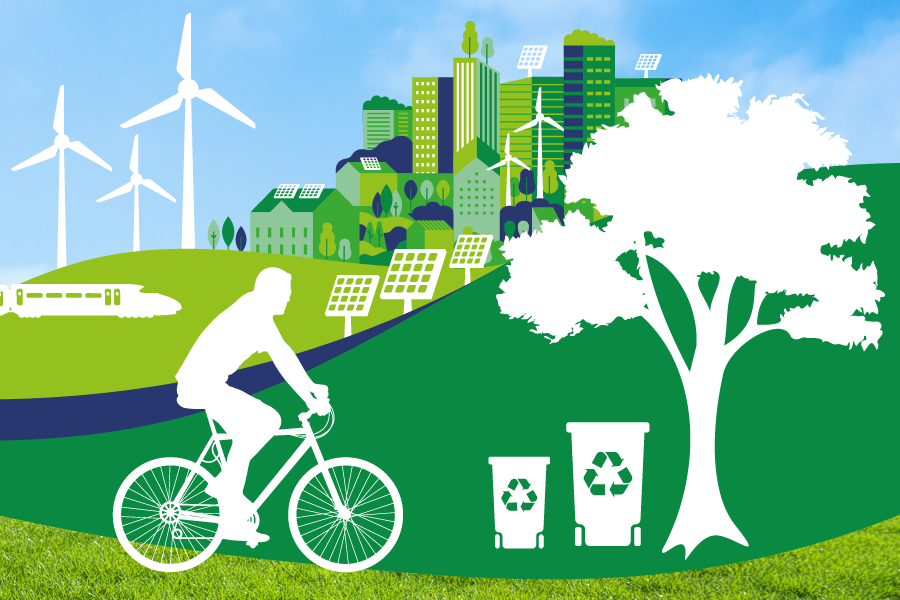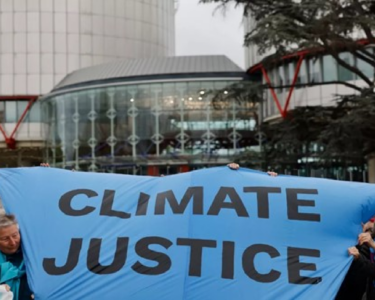The European Green Deal, introduced in December 2019, represents the European Union’s ambitious strategy to achieve climate neutrality by 2050. This comprehensive plan aims to transform the EU’s economy through significant reductions in greenhouse gas emissions, the promotion of sustainable industries, and fostering a circular economy. Beyond its regional impact, the Green Deal holds potential to influence global climate action, potentially serving as a model for other nations and regions.
A central element of the Green Deal is the European Climate Law, which legally binds the EU to its climate neutrality target by 2050. This legislation has also set a milestone target to reduce net greenhouse gas emissions by 55%. The target to complete this goal is by 2030 compared to 1990 levels. Hence, by embedding these targets into law, the EU shows its commitment to climate action, setting a clear trajectory for member states to align their national policies. This legally binding framework positions the EU as a serious and consistent player in the global climate conversation, giving it leverage in international climate negotiations and making it a credible example for other countries to follow.
The Green Deal’s potential influence extends well beyond Europe’s borders, positioning the EU as a leader in global climate diplomacy. Adopting ambitious targets and implementing concrete measures, the EU encourages other nations to enhance their climate commitments, especially in high-stakes international forums such as the United Nations Climate Change Conferences. In recent years, the EU has consistently used its position in these discussions to advocate for increased global ambition and cross-border cooperation, underscoring the importance of climate action as a shared global responsibility. The EU’s climate diplomacy is bolstered by its financial contributions, as it remains the largest contributor to international public climate finance, providing €23.2 billion in 2019 to support climate adaptation and mitigation projects worldwide. Through these investments, the EU actively facilitates sustainable development in lower-income countries, helping them address their climate challenges and reduce their own carbon footprints.
This financial support is a critical component of the EU’s strategy to generate positive global impact, as it helps developing countries build infrastructure for renewable energy, adopt sustainable agricultural practices, and enhance climate resilience. Additionally, this financial backing serves to bridge the gap between wealthier and less developed nations, fostering international partnerships and facilitating the exchange of sustainable technologies and best practices. This type of cross-border support is vital, as it demonstrates the EU’s commitment to an equitable transition and builds the trust necessary for collective climate action.
While the EU’s Green Deal has a promising framework, its implementation faces certain challenges that could potentially affect its global influence. Within the EU, political debates have surfaced over some of the Green Deal’s most ambitious proposals, particularly those related to the ban on internal combustion engine cars by 2035 and the strategies to reduce deforestation. The recent opposition from some member states and industries has created a level of internal friction that risks weakening the coherence of the Green Deal. This internal tension could undermine the EU’s leadership position in climate matters, as it raises questions about the EU’s ability to implement transformative change within its own borders.
Moreover, some European industries and businesses are concerned about the economic implications of the Green Deal. The introduction of stringent environmental regulations has led to increased compliance costs, which could impact competitiveness and drive businesses to reconsider their presence within the EU. This highlights a need for a balanced approach that ensures environmental sustainability while also maintaining economic viability. Striking this balance will be critical to the EU’s ability to set an example for other economies—demonstrating that environmental responsibility and economic growth are not mutually exclusive.
Beyond economic considerations, the Green Deal’s emphasis on a “just transition” is a notable strength that could inspire other nations. This aspect of the plan is designed to ensure that the shift to a sustainable economy is inclusive, addressing potential social inequalities that might emerge in the process. The Green Deal provides funding and support for regions and sectors that may be disproportionately affected by the transition, such as those reliant on fossil fuels. This emphasis on social equity seeks to prevent negative impacts on vulnerable communities and demonstrates a more holistic approach to sustainability. By prioritizing a just transition, the EU offers a model for other nations, especially those with diverse socio-economic conditions, on how to implement equitable climate policies that consider the needs of all communities.
In recent years, global climate challenges have only intensified, with extreme weather events and rising sea levels becoming more common. While the EU only accounts for approximately 9% of global emissions, the Green Deal sends a strong message that the EU is committed to doing its part and influencing others to join the effort. Non-EU countries in the G20 account for over 70% of global emissions, and the success of global climate efforts relies on these major emitters taking serious action. The EU has therefore expanded its Green Deal diplomacy by engaging with countries across Asia, Africa, and Latin America, advocating for similar climate commitments and offering technical and financial assistance to make sustainable transitions more feasible.
Despite the hurdles, the EU’s comprehensive approach to the Green Deal provides valuable insights for global climate policy. By focusing on ambitious, legally binding targets, climate diplomacy, and a just transition, the Green Deal showcases a pathway that balances environmental responsibility with social and economic considerations.
The European Green Deal stands as a landmark initiative with significant implications for global climate action. By enacting binding legislation, leading in climate diplomacy, and committing to financial support for international climate efforts, the EU presents a model that could be mirrored by other regions. Addressing internal challenges and maintaining a balanced approach between environmental and economic objectives will be essential for the Green Deal to reach its full potential. If the EU successfully navigates these challenges, the Green Deal could indeed become a pivotal driver of worldwide climate progress, fostering a future where sustainable development is achievable on a global scale.




